#nikolai grinko
Explore tagged Tumblr posts
Text

Andreï Tarkovski on set of Stalker (1979)
#stalker#1979#arcadi strougatski#boris strougatski#alexandre kaidanovski#alissa freindlich#anatoli solonitsyne#nikolai grinko#natacha abramova#andrei tarkovski
23 notes
·
View notes
Text

#stalker#andrei tarkovsky#aleksandr kaidanovsky#anatoly solonitsyn#nikolai grinko#soviet kino#coretangaguna#im sorry yura bogatyryov
23 notes
·
View notes
Text

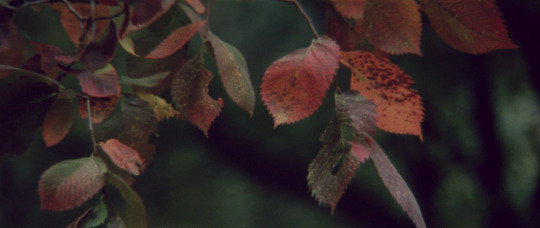
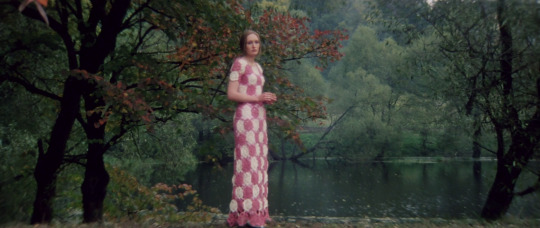



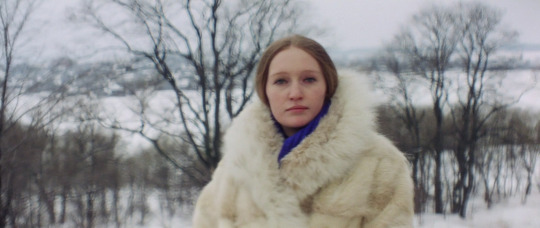
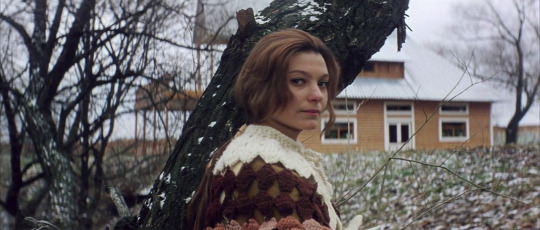

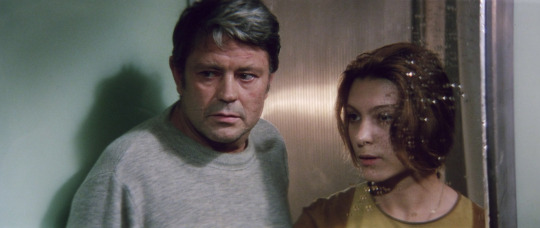
s o l a r i s, 1972 🎬 dir. andrei tarkovsky 'I am not Hari' - hari 2
#film#sci fi#russian cinema#solaris#solaris 1972#andrei tarkovsky#donatas banionis#natalya bondarchuk#Nikolai Grinko#Tamara Ogorodnikova#Kris Kelvin#Hari#as Kelvin's Father#Anna#I Am Not Hari
135 notes
·
View notes
Photo
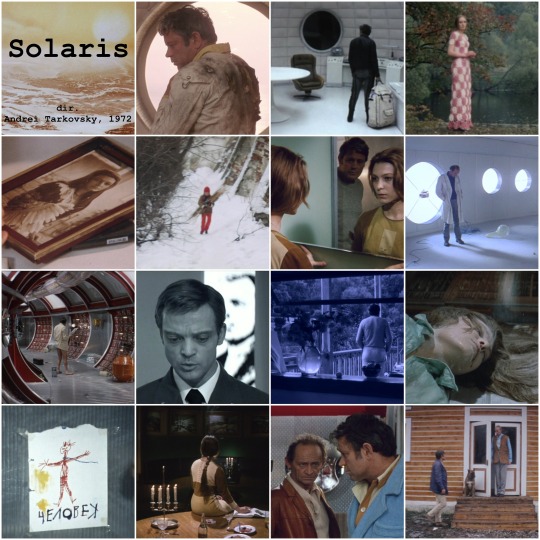
Solaris
directed by Andrei Tarkovsky, 1972
#Solaris#Andrei Tarkovsky#movie mosaics#Donatas Banionis#Olga Barnet#Natalya Bondarchuk#Raimundas Banionis#Anatoli Solonitsyn#Vladislav Dvorzhetsky#Jüri Järvet#Nikolai Grinko
16 notes
·
View notes
Text

#movies#polls#solaris#solaris 1972#solaris movie#70s movies#andrei tarkovsky#donatas banionis#natalya bondarchuk#jüri järvet#anatoliy solonitsyn#nikolay grinko#have you seen this movie poll
137 notes
·
View notes
Text






Andrei Tarkovsky's Stalker (1979)
#movies#andrei tarkovsky#anatoly solonitsyn#stalker#roadside picnic#movie poster#alexander kaidanovsky#nikolay grinko#soviet cinema#cinema#film
35 notes
·
View notes
Text

Solaris, Hungarian lobby card. 1972
6 notes
·
View notes
Text

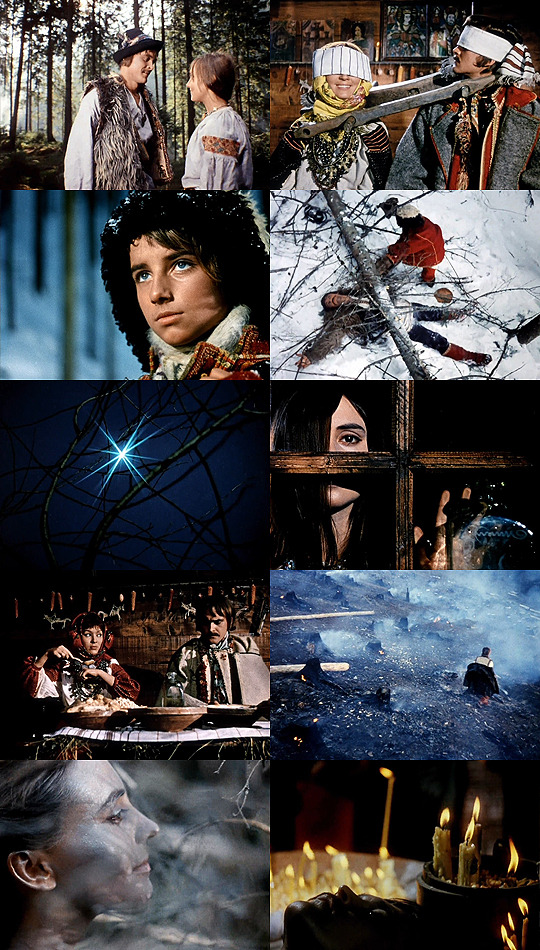
Films Watched in 2025: 1. Тіні забутих предків/Shadows of Forgotten Ancestors (1965) - Dir. Sergei Parajanov
#Тіні забутих предків#Shadows of Forgotten Ancestors#Sergei Parajanov#Ivan Mykolaichuk#Larysa Kadochnykova#Tatyana Bestayeva#Nikolay Grinko#Films Watched in 2025#My Edits#My Post
1 note
·
View note
Text
Stalker (1979)
dir. Andrei Tarkovsky
"you can't be happy at the expense of other's unhappiness"

Stalker is a hypnotising dystopian tale that delves into ideas of religion, morality and human desire. set in an unknown country at an unknown time, the film follows a pilgrimage undertaken by the Stalker (Aleksandr Kajdanovsky), the Writer (Anatoly Solonitsyn) and the Professor (Nikolai Grinko) into The Zone - a mysterious, abandoned area located in the midst of a post-apocalyptic wasteland where the natural laws of physics do not apply. The Zone, guarded by the government, is said to hold The Room which can grant an individual's deepest desire upon entering

the three figures are representative of conflicting philosophies. the Professor - a man of science, is decisively pragmatic, and sees knowledge not as a useful tool but rather a lethal weapon if fallen into the wrong hands. his deep-rooted skepticism of the human condition challenges the conviction that mankind is inherently good. the Writer - a man of art, is a devoted idealist. however, he has grown disillusioned by the world around him, and has seemingly lost faith in his own talent as an artist. they place all their remaining hopes in the Stalker - a man of faith, an altruist for whom the meaning of life is rooted in his desire to ensure the happiness of others by guiding them to The Room, with no interest in entering himself. it is precisely these virtues and moral conviction that both the Writer and the Professor evidently lack that make them incapable of entering The Room once they reach its threshold, being equally plagued by cynicism and terrified of a force beyond their comprehension
The Room allegedly grants one’s innermost desire, but that does not mean that it is what one believes to yearn for the most. this is illustrated when the Professor recounts the story of a former Stalker ‘Porcupine’ who had lost a brother, and entered The Room in order to bring him back to life. however, upon his return, he instead came back home to a large sum of money - meaning that, subconsciously, he longed for wealth more than the return of his dead brother. this unbearable realisation drove a guilt-ridden Porcupine to suicide soon after. much like Porcupine, the Writer and the Professor are afraid of what they may discover once their desires are manifested. for them, ignorance is bliss and far preferable to confronting their lack of integrity - even at the expense of fulfilment. The Zone then becomes, in a way, a judgment of character. there are the obvious moral dilemmas that one must confront in the Room, that can only be ascertained by embracing what you seek

"what comes true here is that which reflects the essence of your nature. it is within you. it governs you"
overall, the true essence of the film lies not so much in the destination but in the spiritual pilgrimage these three individuals undertake on their way to the Room. it possesses a poetic, magnetic quality that pulls you in, much like the Room lures in the individuals that the Stalker guides
“Stalker is a tragedy, but tragedy is not hopeless. Tragedy cleanses man. I believe that only through spiritual crisis healing begins. In this film I wanted to make some sort of complete statement: namely that human love alone is - miraculously - proof against the blunt assertion that there is no hope for the world. This is our common, and incontrovertibly positive possession - that essentially human thing that cannot be dissolved or broken down, that forms like a crystal in the soul of each of us which is all a person can count upon his existence”
with love,
sasha
10 notes
·
View notes
Text
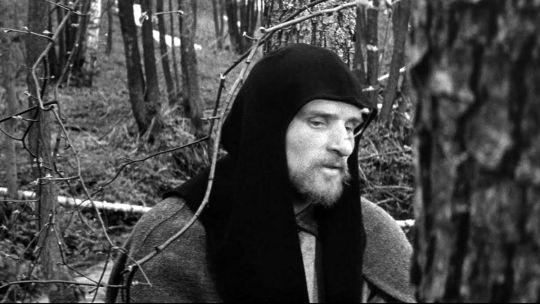
Anatoliy Solonitsyn in Andrei Rublev (Andrei Tarkovsky, 1966)
Cast: Anatoliy Solonitsyn, Nikolay Grinko, Nikolay Sergeyev, Nikolay Burlyaev, Ivan Lapikov, Irma Raush, Yuriy Nazarov, Yuriy Nikilin, Rolan Bykov, Mikhail Kononov. Screenplay: Andrey Konchalovskiy, Andrei Tarkovsky. Cinematography: Vadim Yusov. Production design: Evgeniy Chernyaev. Film editing: Tatyana Egorycheva, Lyudmila Feyginova, Olga Shevkunenko. Music: Vyacheslav Ovchinnikov.
Has any filmmaker ever made more eloquent use of the widescreen format than Andrei Tarkovsky does in Andrei Rublev? It was a process developed by Hollywood to help win its war with television -- bigger naturally assumed to be better. In Hollywood, it usually went hand-in-hand with color, and although the various widescreen processes -- Cinerama, Cinemascope, VistaVision, etc. -- were used in black-and-white films, they often feel out of place today. A case in point: The Diary of Anne Frank (George Stevens, 1959), which won an Oscar for the cinematography of William C. Mellor, but which seems to cry out for a format less expansive than CinemaScope, in which the Frank family's attic loses its cramped and confined essence. Andrei Rublev was filmed in a process called Sovscope, which like CinemaScope used anamorphic lenses to produce a 2.35:1 aspect ratio. Tarkovsky and cinematographer Vadim Yusov artfully work with the expanse of the screen, not shying away from closeups but also doing extraordinary movement with the camera. One of the earliest scenes takes place in the barn in which Rublev and his fellow artist-monks take shelter from the rain. We are given an astonishing 360-degree pan inside the barn, circling from the monks to the other denizens of the shelter and back to the monks, a study in faces that establishes one of the film's major subjects: the nature of Russian humanity, which also becomes an abiding concern of Rublev's. (I think there's a witty acknowledgment of the nature of widescreen in that the peep-hole cut into the wall of the bar seems to have the same aspect ratio as the film.) And in the concluding sequence, there is a magnificent pan from the gates of the walled city of Vladimir below and the emerging procession up to the structure that holds the newly cast bell, where Boriska (Nikolay Burlyaev) waits anxiously. Andrei Rublev is one of those films I can't help rewatching; even though (or perhaps because) it's slow and challenging, it more than repays frequent viewings. Tarkovsky is not a director to be taken lightly, and the moment you begin to be lulled by the magnificence of Yusov's cinematography or Vyacheslav Ovchinnikov's score, the director is likely to shock you with images of cruelty and brutality but also of beauty that make you sit upright. A "trigger warning" might be especially needed for lovers of animals, given the harshness with which they are occasionally treated: There is a scene with a cow on fire that will likely haunt me for a long time.* But all the unpleasantness in the film is in service of a story about the persistence of the Russian people and the transcendence of art. Anatoliy Solonitsyn, who plays Rublev, looks a bit like Viggo Mortensen, and recalls for me the tormented masculinity you find in some of Mortensen's performances. Another standout performance is given by Tarkovsky's wife, billed as Irma Raush, as the "holy fool" Durochka, whom Rublev saves from a massacre by the Tatars by killing the assailant -- leading Rublev to atone by giving up his painting and taking a vow of silence. The last section of the film is given over to young Boriska, played by Nikolay Burlyaev, the astonishing Ivan in Tarkovsky's Ivan's Childhood (1962), who takes on the task of casting a church bell despite the suggestion that he will be murdered by the tyrannical Grand Duke (Yuriy Nazarov) if he fails. Although the film is in black-and-white, it concludes with a breathtaking color sequence in which Rublev's paintings are shown in close-up. To my mind, this final ecstatic survey of Rublev's work is the only section in which Tarkovsky is thwarted by the widescreen process: Rublev's paintings had an aspiring verticality that is at odds with the dimensions of the screen.
*The scene, I learned, on a recent re-viewing of the film, doesn't exist in all versions. In addition to versions made by Soviet censors, Tarkovsky himself made two: His original version ran 205 minutes, but he also made a "final cut" that runs 183 minutes.
2 notes
·
View notes
Text



#ProyeccionDeVida
🎥 MosFilm 100, presenta:
🎬 “LA INFANCIA DE IVÁN” [Ivanovo detstvo / Ivan's Childhood]

🔎 Género: Drama / Bélico / II Guerra Mundial / Espionaje / Infancia / Nazismo
⌛️ Duración: 95 minutos
✍️ Guión: Vladimir Bogomolov y Mikhail Papava

🎵Música: Vyacheslav Ovchinnikov
📷 Fotografía: Vadim Yusov
🗯 Argumento: Segunda Guerra Mundial (1939-1945) Frente Oriental; Iván, un niño ruso de doce años, cuyos padres murieron durante la invasión nazi, trabaja espiando a los alemanes.

👥 Reparto: Valentin Zubkov (Kholin), Nikolái Burliáyev (Ivan), Andréi Konchalovski (Soldado con anteojos), Nikolai Grinko (Gryaznov), Irma Raush (Madre de Ivan), Yevgeny Zharikov (Galtsev), Stepan Krylov (Katasonov), Valentina Malyavina (Masha) y Dmitri Milyutenko (Anciano).
📢 Dirección: Andrei Tarkovsky

© Productora: Mosfilm
🌎 País: Unión Soviética (URSS)
📅 Año: 1962

📽 Proyección:
📆 Martes 10 de Setiembre
🕖 7:00pm.
🏪 Cine Club de la Universidad de Ciencias y Humanidades (av. Bolivia 537 - Breña)
🚶♀️🚶♂️ Ingreso libre con DNI.
0 notes
Text
okay wait hold on WHAT

okay no
stalker did NOT come out before the actual chernobyl incident
@foxgirlhivemind am I missing something extremely cruciwait hold on a damn minute

ah, wrong stalker
("Stalker (Russian: Сталкер, IPA: [ˈstaɫkʲɪr]) is a 1979 Soviet science fantasy art film directed by Andrei Tarkovsky with a screenplay written by Arkady and Boris Strugatsky, loosely based on their 1972 novel Roadside Picnic. The film tells the story of an expedition led by a figure known as the "Stalker" (Alexander Kaidanovsky), who guides his two clients—a melancholic writer (Anatoly Solonitsyn) seeking inspiration, and a professor (Nikolai Grinko) seeking scientific discovery—through a hazardous wasteland to a mysterious restricted site known simply as the "Zone", where there supposedly exists a room which grants a person's innermost desires. The film combines elements of science fiction and fantasy with dramatic philosophical, psychological and theological themes.[5]""
"The meaning of the word "stalker" was derived from its use by the Strugatsky brothers in their novel Roadside Picnic, upon which the movie is based. In Roadside Picnic, "Stalker" was a common nickname for men engaged in the illegal enterprise of prospecting for and smuggling alien artifacts out of the "Zone". According to author Boris Strugatsky, "prospectors" and "trappers" were potential word choices before "stalker" was decided on, which was at least partially inspired by Rudyard Kipling's character "Stalky" in his Stalky & Co. stories, of which both authors were fans. Their adaptation of the English word into Russian is pronounced slightly differently as "Stullker", and it came into common usage after being "coined" by the authors.[7]")
also has nothing to do with chernobyl, which feels significantly more odd than it logically should be, (although that's almost definitely just a result of the retroactively obtained expectations it has due to the game)
kabru dunmeshi is basically a chernobyl survivor who was adopted by an eternally young hot white woman who was going to pamper him for his entire life but instead of wanting to be pampered he was like "mom, i need to become a stalker. i need to return to the Zone" and his elf mom was like "nooo the Zone sucks you'll be shot by a bandit" and he was like "no mom i need to go to the Zone and find out what happened" and she was like "fine" and pulled out a machinegun from her days in the Suicide Squad and trained him to kill while firing on him with live ammunition. Then he went to the Zone and immediately got killed by a pack of wild dogs because elf mom only taught him how to shoot other humans
17K notes
·
View notes
Video
youtube
Solaris | SCIENCE FICTION | FULL MOVIE | directed by Tarkovsky
The Solaris mission has established a base on a planet that appears to host some kind of intelligence, but the details are hazy and very secret. After the mysterious demise of one of the three scientists on the base, the main character is sent out to replace him. He finds the station run-down and the two remaining scientists cold and secretive. When he also encounters his wife who has been dead for ten years, he begins to appreciate the baffling nature of the alien intelligence... IMDb rating: 8,0 Year of production: 1972 Director: Andrey Tarkovsky Writers: Andrey Tarkovsky, Friedrich Gorenstein Composer: Artemyev Eduard Operator: Yusov Vadim Production Designer: Romadin Mikhail Starting: Cast: Grinko Nikolai, Dvorzhetsky Vladislav, Banionis Donatas, Solonitsyn Anatoly, Bondarchuk Natalia, Yarvet Yuri, Sargsyan Sos
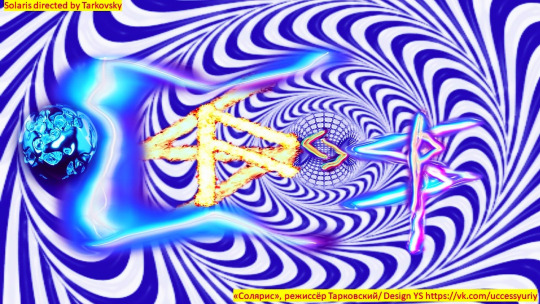
"Solaris" was inspired by the film and has similar abilities. The scope of application is limited only by your desires and not desires. Energy enters the area of your strongest desires, fills your thought forms and transfers it to the area of implementation. Keep track of your vision for your future. Make a diagnosis of your ability to believe that this time everything will work out for you in the most real, magical way. Do any ritual that allows your subconscious to pay attention to this and indicate increased significance. Meditate on the “picture”, listen to music that will help you disconnect from everyday life and bustle. Print it in color, frame it and place an area of your space in your apartment. Keep a diary of your path to your dream (your book about your magic, maybe this is the best). Don’t forget to thank everyone who provides you with all possible help and sympathy along this path. Magic is a way of thinking translated only through your efforts in your own life. The main thing is to believe and commit. Good luck, Yuri. I am attaching a film and an audio performance based on this work by S. Lem, it’s worth watching at least once to understand the meaning of your future actions... The main runes in the “picture” are written down, there are a few more secondary runes and the arrangement itself carries a lot of energy, the main thing is to feel it.
0 notes
Text










s o l a r i s, 1972 🎬 dir. andrei tarkovsky 'Burton'
#film#sci fi#russian cinema#solaris#solaris 1972#andrei tarkovsky#donatas banionis#Vladislav Dvorzhetsky#Nikolai Grinko#Kris Kelvin#Henri Burton#as Kelvin's Father#Burton
9 notes
·
View notes
Text
I have 31 tabs open on Google chrome on my phone, my ADHD is consuming me, so I'm gonna vomit here.
I have not seen this movie but the tab has been open for months, stalker sounds like a very interesting movie! (Plot below) I hope to sit down one day n experience it. Did you like it? Is it worth my time? Does the matters of the universe weigh on my opinion? I'm not sure but it's nice out so try to enjoy your days!
In an unnamed country at an unspecified time, there is a fiercely protected post-apocalyptic wasteland known as The Zone. An illegal guide (Aleksandr Kajdanovsky), whose mutant child suggests unspeakable horrors within The Zone, leads a writer (Anatoliy Solonitsyn) and a scientist (Nikolay Grinko) into the heart of the devastation in search of a mythical place known only as The Room. Anyone who enters The Room will supposedly have any of his earthly desires immediately fulfilled.

1 note
·
View note
